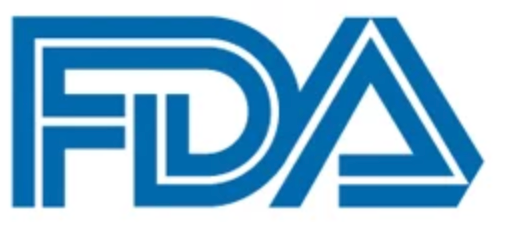Article
FDA Grants Orphan Drug Designation to Gunagratinib for Cholangiocarcinoma
Author(s):
The FDA has granted an orphan drug designation to gunagratinib as a potential therapeutic option for patients with cholangiocarcinoma.

The FDA has grantedan orphan drug designation to gunagratinib (ICP-192) as a potential therapeutic option for patients with cholangiocarcinoma.1
Data from the first-in-human phase 1/2a ICP-CL-00301 trial (NCT03758664) presented during the 2021 ASCO Annual Meeting showed that among 12 patients with FGF/FGFR gene aberrations who completed at least 1 tumor assessment, gunagrabtinib induced an overall response rate (ORR) of 33.3% (n = 4).2
Of these responders, 1 patient with cholangiocarcinoma (8.3%) achieved a complete response, 3 (25%) experienced a partial response, and 7 had stable disease. Moreover, the disease control rate with the agent was 91.7% (n = 11).
“We are very proud that our solid tumor drug has been granted orphan drug designation by the FDA following that for our blood cancer drug,” Jasmine Cui, PhD, co-founder, chairwoman, and chief executive officer of InnoCare, stated in a press release. “Gunagratinib demonstrated antitumor activity for multiple tumor types, including cholangiocarcinoma, in patients with FGF/FGFR gene aberrations. We will rapidly advance the multicenter multi-indication clinical trials in both the United States and China in order to benefit patients early.”
The FGFR signaling pathway has been shown to represent a critical driver of tumorigenesis in several tumor types. The novel irreversible pan-FGFR inhibitor gunagratinib was developed to have strong antitumor activity with high target selectivity. The agent is hypothesized to be able to overcome acquired resistance to first-generation ATP-competitive FGFR inhibitors.
In the phase 1/2a dose-escalation and -expansion trial, investigators set out to examine the safety and efficacy of gunagratinib in patients with advanced solid tumors. The dose-escalation portion of the research enrolled patients with advanced solid tumors who had previously received standard treatment that had failed. Doses ranged from 2 mg once daily up to 16 mg once daily.
In the dose-expansion phase of the trial, the agent is being evaluated at a once-daily dose of 12 mg in 25 patients. For this portion of the research, patients needed to have previously received at least 1 systemic frontline chemotherapy regimen and they needed to have cholangiocarcinoma that harbored FGFR2 translocations or fusions.
Investigators noted a dose-dependent increase of plasma exposure and linear pharmacokinetic properties of the agent. Moreover, an increase in serum phosphorus with gunagratinib was observed when the drug was administered at a once-daily dose of 8 mg or higher.
Regarding safety, no dose-limiting toxicities were reported with the agent. Moreover, the maximum-tolerated dose of gunagratinib had not yet been reached. Notably, no central serious retinopathy/retinal pigment epithelial detachment was observed.
Among 30 patients included in the safety analysis, across the dose-escalation phase of the trial (n = 23) and the dose-expansion phase (n = 7), treatment-related toxicities reported in 20% or more of patients included metabolism and nutrition disorders like hyperphosphatemia (73.33%), hypercalcemia (33.33%), and hypertriglyceridemia (26.67%); increased aspartate aminotransferase (26.67%) or alanine aminotransferase (23.33%), and increased blood uric acid (20.00%). Moreover, diarrhea was reported in 26.67% of patients.
References
- InnoCare announces orphan drug designation of gunagratinib by US FDA for treatment of cholangiocarcinoma. News release. InnoCare Pharma. June 16, 2021. Accessed June 17, 2021. https://prn.to/3cPskBg
- Guo Y, Yuan C, Ying J, et al. Phase I result of ICP-192 (gunagratinib), a highly selective irreversible FGFR inhibitor, in patients with advanced solid tumors harboring FGFR pathway alterations. J Clin Oncol. 2021;39(suppl 15):4092. doi:10.1200/JCO.2021.39.15_suppl.4092









